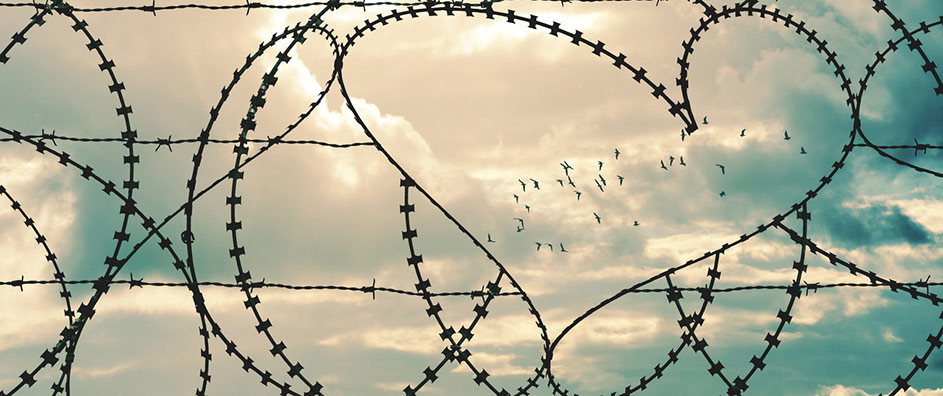In a world beset by conflict, division, and strife, the teachings of the Baha’i Faith provide a profound lens through which to examine one of the most pernicious impediments to peace: prejudice. This article delves into the various forms of prejudice, the underlying philosophies the Baha’i Faith offers to combat these biases, and the imperative for cognizance and action within both individual lives and society at large.
At its core, prejudice can be delineated as an irrational and preconceived judgment about individuals or groups based on characteristics such as race, gender, or social standing. Such biases are deeply ingrained in societal constructs and manifest in myriad ways, including discriminatory laws, economic disparities, and social ostracism. Whether overt or insidious, the consequences of prejudice are catastrophic, obstructing not only individual well-being but also the collective harmony necessary for societal progress.
Within the framework of Baha’i teachings, prejudice is identified as a formidable barrier to the establishment of world peace. The founders of this religious movement emphasized the interconnectedness of all humanity, positing that genuine peace can only be achieved through the eradication of prejudicial attitudes and practices. Baha’u’llah, the founder of the Baha’i Faith, articulates a vision of unity that transcends the superficial divisions that often characterize human interaction. Such unity is not merely a lofty ideal; it is a crucial requisite for sustainable peace.
There are several dimensions of prejudice that warrant exploration. First, racial prejudice remains a formidable challenge, often resulting in systemic inequalities and social fragmentation. The Baha’i teachings emphasize the inherent nobility of every human being, urging followers to acknowledge and celebrate diversity as a hallmark of divine creation. In refusing to succumb to racial biases, individuals cultivate a more profound sense of empathy and solidarity, transcending artificial barriers that divide humanity.
Gender prejudice, too, constitutes a significant barrier to both personal and societal advancement. The Baha’i Faith champions the equality of men and women, recognizing that the full participation of both genders in all spheres of life is imperative for the flourishing of society. By deconstructing patriarchal norms and advocating for gender parity, Baha’i principles foster comprehensive social development, thus facilitating the emergence of more peaceful communities.
Religious prejudice is another insidious form that undermines peace. The Baha’i teachings advocate for the principle of the oneness of religion, asserting that all major world religions ultimately reflect divine truth. This perspective invites dialogue, mutual respect, and understanding among adherents of differing faiths, rendering religious intolerance a relic of a bygone era. Embracing this pluralistic view not only enriches individual spiritual experiences but also cultivates an environment conducive to lasting peace.
Socioeconomic prejudice is yet another dimension that cannot be overlooked. Economic disparities often engender class-based prejudices that hinder social cohesion and engender animosity. Baha’i principles promote an equitable distribution of resources and the upliftment of impoverished communities, fostering economic justice as a cornerstone of societal peace. By addressing the roots of economic inequality, individuals and communities can work together to build a more just and harmonious world.
Addressing and mitigating prejudice requires concerted efforts at both individual and collective levels. The Baha’i Faith underscores the significance of education as a powerful antidote to ignorance and bias. By promoting diverse and inclusive educational systems, societies can stimulate critical thinking and foster an appreciation for differences. Educational interventions that emphasize shared human values can nurture compassion and dismantle prejudicial ideologies.
Another essential aspect of combating prejudice lies in self-reflection and personal accountability. Individuals are called upon to rigorously examine their beliefs and behaviors, striving to eradicate any prejudicial inclinations within themselves. The commitment to personal transformation is essential, as societal change often begins with the individual. By cultivating an attitude of openness and acceptance, individuals can contribute to a larger cultural shift that seeks to eradicate prejudice.
Community-building initiatives serve as vital platforms for fostering understanding and acceptance among diverse groups. The Baha’i teachings advocate for collaborative efforts that bring together individuals from various backgrounds, encouraging dialogue and cooperative action. Such initiatives, whether through local gatherings or larger community events, enable participants to confront biases and cultivate friendships based on shared objectives. This collective consciousness can serve as a catalyst for broader societal change.
Furthermore, the role of art and culture in combating prejudice cannot be understated. Artistic expressions—be it literature, music, or visual arts—offer unique avenues for exploring complex human experiences, bridging gaps, and fostering empathy. Baha’i teachings encourage the utilization of creative endeavors as a means of promoting understanding and connection among disparate communities. Through art, individuals can articulate their stories, thus contributing to a richer tapestry of shared human experience.
In summary, the Baha’i Faith provides a comprehensive and profound framework for addressing the multifaceted nature of prejudice. By recognizing the various forms of this barrier to peace—racial, gender, religious, and socioeconomic—individuals and communities can commit to the principles of equality, unity, and justice espoused within these teachings. The path toward lasting peace necessitates vigilance, action, and a collective dedication to transcending the prejudices that separate humanity. To achieve this lofty aim, it is essential that we embrace the ideals of the Baha’i teachings, committing ourselves to the quest for a more inclusive, equitable, and peaceful global society.
